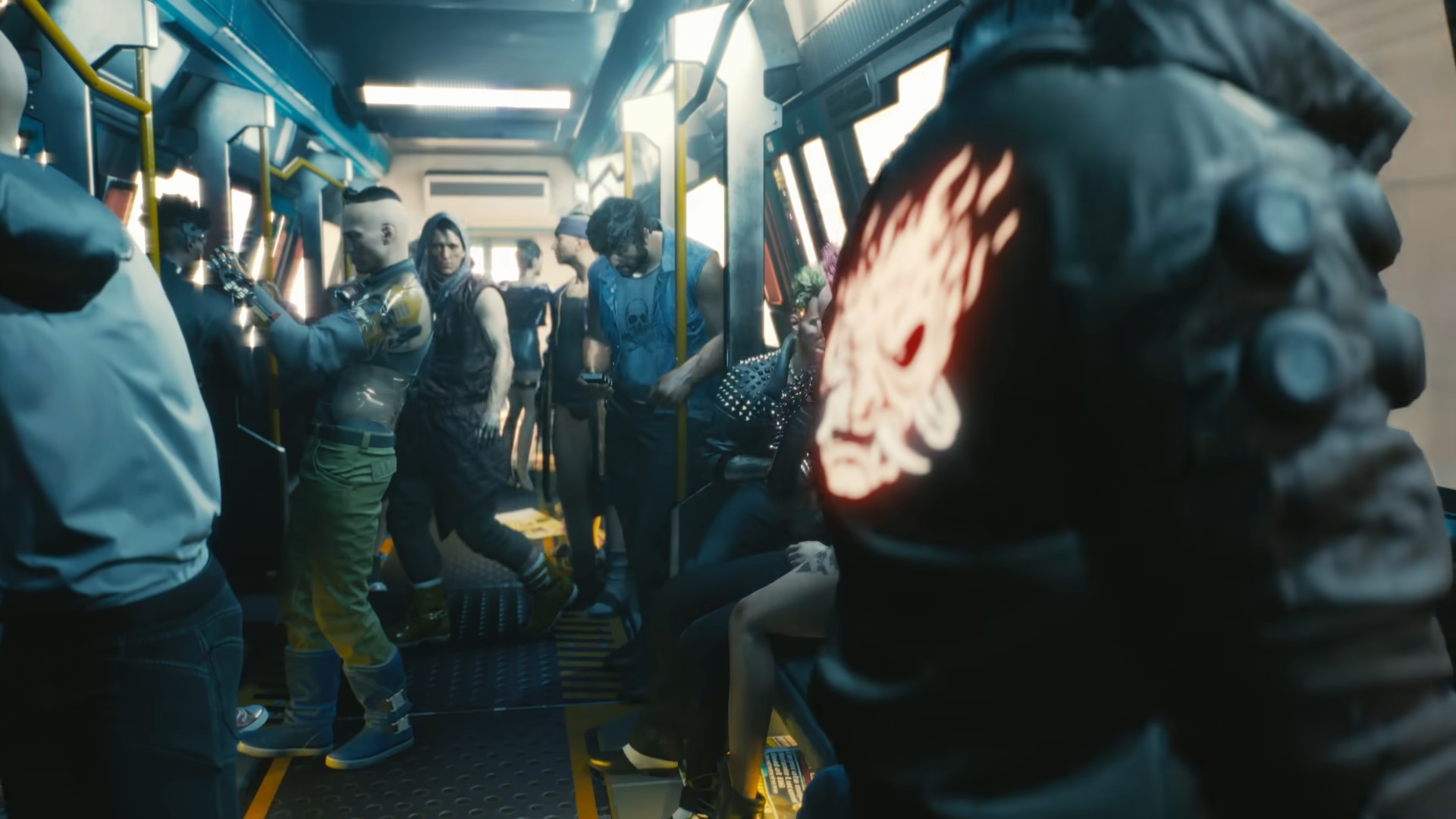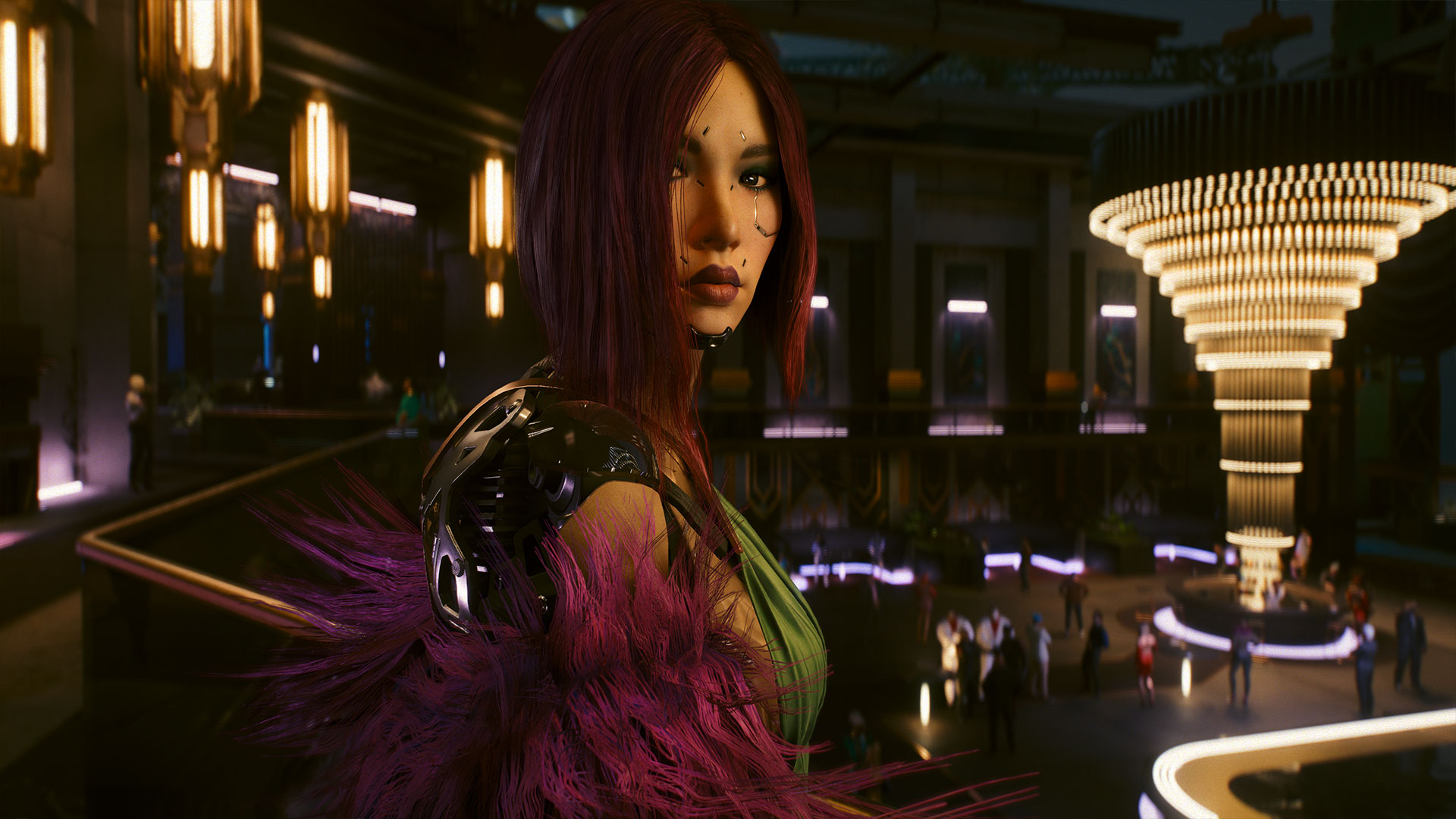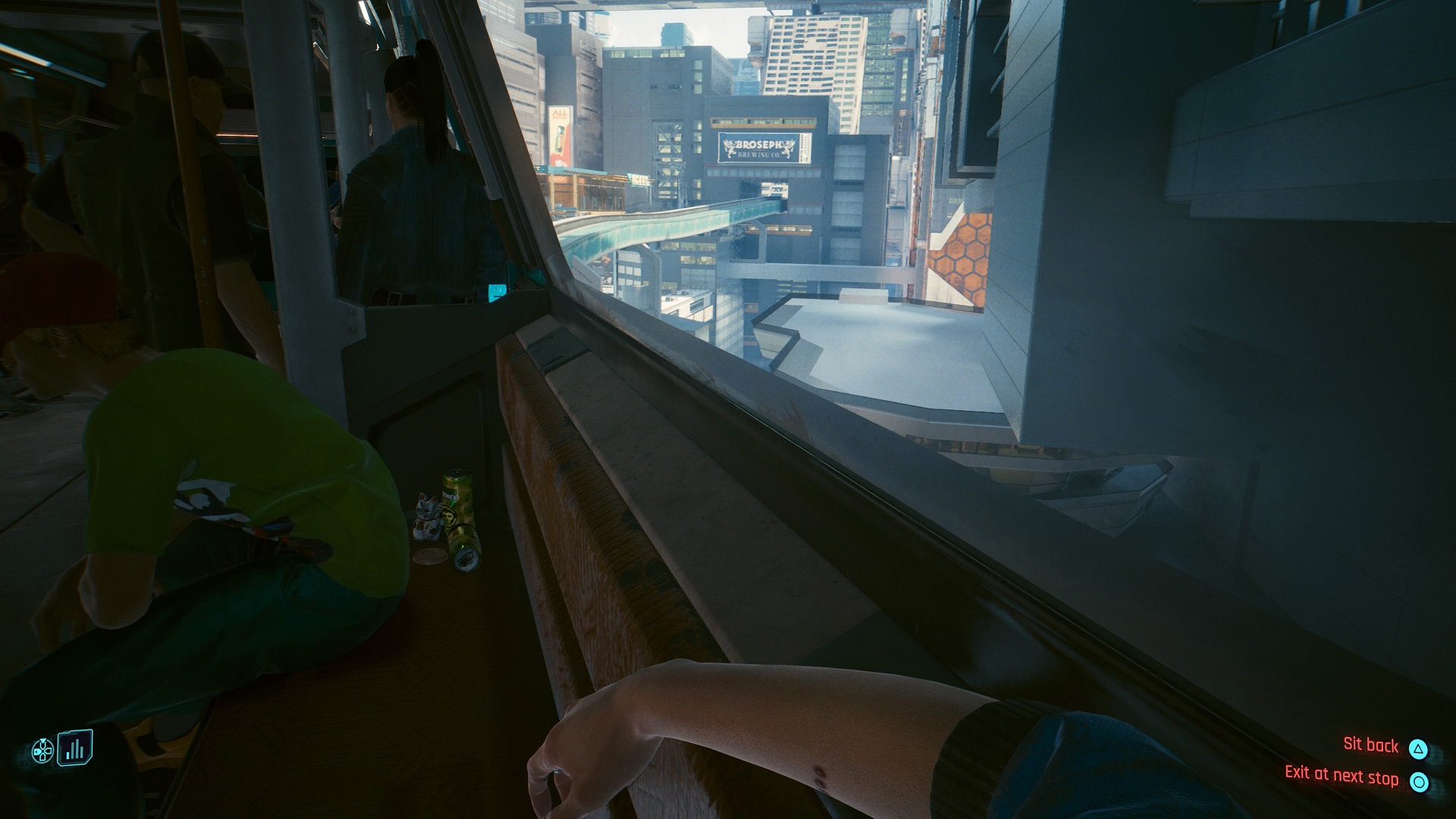The making of Cyberpunk 2077's metro system: "From day one, we considered the NCART to be a roleplaying feature first and foremost"
Interview | "Everything was put together between Phantom Liberty and the release of Patch 2.1"

Night City is a dangerous, dark, and deadly place to be in most of the time. The neon-tinted metropolis V calls home in Cyberpunk 2077 is usually a loud, bustling hive of activity, where gangs trade gunfire and big screens project colorful commercials advertising everything from XXL burritos to braindances. I'm used to its fast-paced buzz, but from where I'm sitting right now, it's anything but. In fact, it's positively peaceful. On board the NCART train, going from one stop to the next, the city slowly passes me by, giving me the chance to soak in the sights of the high-rise buildings and illuminated signs that decorate the skyline. The more I use it, the more I love the way it lets me appreciate a virtual space I've spent so much time in from a new perspective.
While the metro has always been a part of the makeup of Night City, it wasn't until the 2.1 update back in December last year that CD Projekt Red took the opportunity to introduce a functional rail network we can now hop onto.
"The metro network was always part of Night City lore and urban planning," lead quest designer Danisz Markiewicz says. "We'd been toying with the idea in some shape or form on and off during development, but the idea to make it a reality, in the form it is now, didn't come around until shortly before Phantom Liberty released, when we began planning Patch 2.1. A lot of people think we probably had it tucked away somewhere, but in reality almost everything was put together between Phantom Liberty and the release of Patch 2.1, with the exception of some models. We assembled a small, interdisciplinary team and got to work."
All aboard

One of the Cyberpunk 2077 trailers that always sticks in my mind is the one from E3 2018. Showing off V as they make their way down a train carriage, we see a map of the rail network before the cityscape flits past the window. Of course, when the game released at the end of 2020, there was no metro to ride, but such a feature has been on fans' minds ever since. It's something that CD Projekt was well aware of when it came to officially bringing the metro system to life for the 2.1 update.
"We knew that players would draw comparisons between our metro experience and the first in-engine trailer for the game, so this became a bit of a benchmark for us", Markiewicz says. "Some people actually ended up testing the metro to the audio of that trailer to make sure that it all feels right when V gets up and stands by the door. We wanted to recapture this vibe. And since it was all about immersion, we added as many cool little details as possible, like announcements, fully functional line diagram displays, or weather forecasts, all in an effort to make it feel alive and real."


Cyberpunk 2077 Phantom Liberty review: "The culmination of CD Projekt Red's efforts"
As Markiewicz says, the metro system is all about immersion, and it speaks to why I enjoy using it so much. With plenty of cars and motorcycles to buy or steal to make our way around Night City, and several fast-travel points to unlock across the various districts, you could argue that it's unnecessary. But I love all of the little details on board the train that feed into the role-playing side of the RPG. Whether it be choosing to stand or take a seat, lean back as you sit to get a better view by the window, or readying yourself for your stop, everything works together to make you feel like you're really on board, taking in the city as it goes by.
Which, as it turns out, is exactly what the team at CD Projekt Red was aiming for and the number of spots and poses we can use "came naturally" as a result of their approach. "From day one, we considered the NCART to be a roleplaying feature first and foremost" says Markiewicz. "We decided to make sure it would feel right - those memorable Cyberpunk: Edgerunners scenes were in our minds, of course. It was all about V, and by extension our players, feeling connected to the people of Night City and the city itself. That design principle guided other decisions, like making sure that the Radioport is fully integrated with the metro, or that at least one line is a full loop so you can travel forever while listening to your favorite songs."
Sign up to the GamesRadar+ Newsletter
Weekly digests, tales from the communities you love, and more
What's my line?

The setting of Cyberpunk 2077 is by no means small, and the sprawling metropolis is home to various districts with their own distinct vibe. What initially struck me about the metro system is how many lines you can choose from that encompass all of the major destinations across Night City. With five lines in total, selecting which one to ride also adds to the role-play aspect - for me, it brings to mind the various tube lines for the London underground here in the UK. In fact, so much of the experience reminds me of my own travels by train. And from what Markiewicz tells me, it's no wonder I can easily relate to it given that the NCART takes inspiration from the team's own experiences on subways.
"At one point we prepared a whole list of ideas for small 'slice of life' moments that can randomly happen, drawing from our own personal experiences and stories. There is a lot of Warsaw subway in there, but also London, Berlin, and Los Angeles, as people from all over the world pitched in. Some of those touches are small, some developed into whole scenes that play out. I personally like the 'creepy stare'. We’ve all been there, feeling uncomfortable as a strange person on the train keeps staring at us. Night City is no different. Well, except for the fact that those eyes could be glowing."

"NCART stations and tracks were already part of the city layout, and in fact there were some fan-made maps outlining how different lines would operate."
Danisz Markiewicz
Drawing from their own personal stories across the team helped inform the team's approach to the experience on board the NCART carriage, but when it came to actually designing the functional metro system within Night City, the lines proved to be the greatest challenge for CD Projekt Red. "Planning the lines was in fact the most challenging thing regarding this whole endeavor," Markiewicz says. "I spent hours with our environment city coordinator Wiktoria Stachowska considering options and discussing changes. NCART stations and tracks were already part of the city layout, and in fact there were some fan-made maps outlining how different lines would operate. We had to make sure that our lines overlapped in a way that would be convenient to players, but also would make a believable commute for Night City residents. That meant adding some tracks or turns where there were none, or expanding certain stations, like Corporate Plaza."
"Game lore was also a consideration, of which Line C is a perfect example. If you look at the map, it's very short and even odd at first glance, connecting Corporate Plaza with Pacifica, two very unlikely destinations. Until you consider Kurt Hansen, the de facto ruler of Dogtown [in the Phantom Liberty expansion], and his influence and connections. If not for Hansen, this line and probably the entire Pacifica station would be shut down."
When I originally returned to Night City for the 2.1 update, I was in it for the romantic hangouts. Little did I know I would end up restarting my adventure with V all over again thanks to other additions like the NCART city pass and functional metro system. During my time revisiting the RPG, I've found myself hopping onto the metro several times to kick back and enjoy the sights of a neon-tinted city that's so often throwing me into the action - and I'm sure I'm not alone in that.
"The feedback and reactions made it all worth it," Markiewicz says. "And watching people discover the tiny details is always fun, like a certain meme recreated with everyone's favorite rockerboy, or people randomly noticing cats sleeping on the train. I'm pretty sure there are still small things people are still discovering, both with the NCART and Patch 2.1 in general."
See what else is in store from the studio with our round up of upcoming CD Projekt Red games.

I started out writing for the games section of a student-run website as an undergrad, and continued to write about games in my free time during retail and temp jobs for a number of years. Eventually, I earned an MA in magazine journalism at Cardiff University, and soon after got my first official role in the industry as a content editor for Stuff magazine. After writing about all things tech and games-related, I then did a brief stint as a freelancer before I landed my role as a staff writer here at GamesRadar+. Now I get to write features, previews, and reviews, and when I'm not doing that, you can usually find me lost in any one of the Dragon Age or Mass Effect games, tucking into another delightful indie, or drinking far too much tea for my own good.


